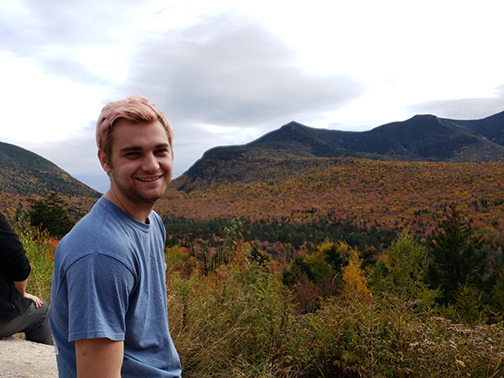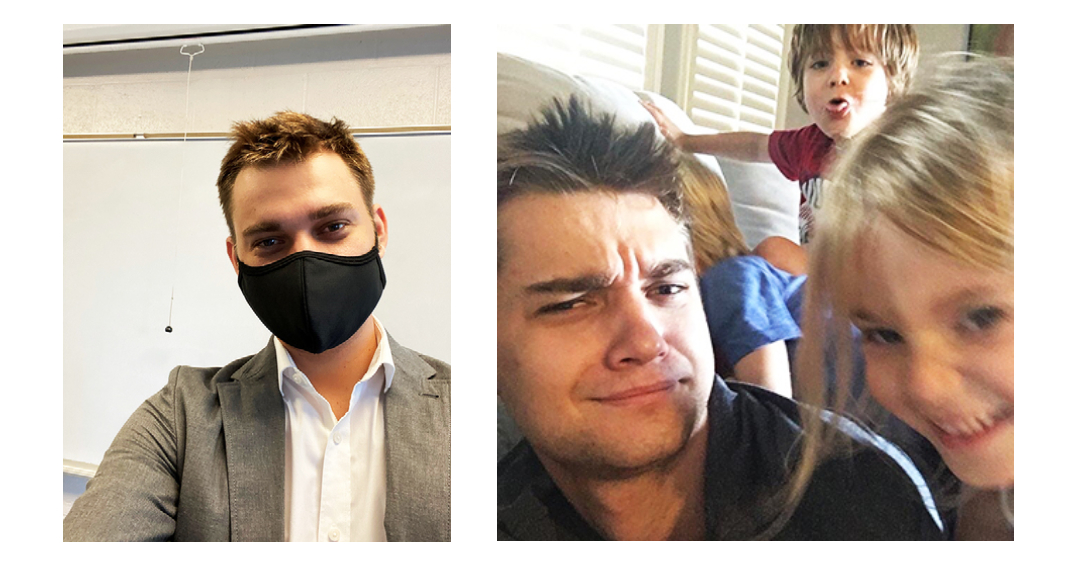Bryce Stanley Rises to Success, Despite Educational Barriers and Discrimination Against His Disability
 By Nicky Miller
By Nicky Miller
In this episode of Kessler Foundation's podcast, Nicky Miller spoke with Bryce Staley, a PhD candidate in economics at the University of New Hampshire, where he studies mental health policy and labor markets. They talked about his sleeping disorder and his experience at high school and college. Stanley, reflected on his experiences with skeptical high school teachers doubting he had a disability, and moving forward in his career, earning a BSBA degree from Bryant University, and an MA degree in Economics from the University of New Hampshire, before studying for his PhD.
Listen to the podcast, view the transcript and download this episode and others for free on Apple Podcasts, SoundCloud, Podbean, Spotify, or wherever you get your podcasts.
Looking for other podcasts similar to Stanley's story? Listen to A Woman with a Disability: Finds Strength, Conquers Barriers and Creates Success in the Workforce and Voices of the ADA Generation: The College-to-Work Story of Victoria Queyquep.
Below is a modified excerpt from Stanley's conversation.
Nicky Miller (NM): I wanted to start off by giving you an opportunity to introduce yourself and tell us a little bit about your educational background.
Bryce Stanley (BS): Right now, I am a PhD candidate at the University of New Hampshire where I study economics. Before then I started my college career at community college largely due to my disability, which I'm sure we'll get into earlier. My grades out of high school didn't really leave me with any other options. So I went to community college for a year and then transferred to a four year school. Worked a little bit inside the startup field and then applied and went straight to grad school.
NM: Could you briefly touch on your disability?
BS: I have MDD but the disability that I think is kind of more focused on today is I have a sleeping disorder called delayed sleep phase disorder or delayed sleep phase syndrome. So I'm not sure if you have heard of this before Nicky? Are you familiar with this?
NM: No, I'm not. Did you want to touch on that?
BS: So from my very nonscientific and very limited medical background my understanding of it is that sunlight gives off kind of signals to our brain as it's being recepted through our eyes, "Hey. It's time to be awake." And then when the sun goes down, it says, "Hey. It's time to go to sleep," right? So I think melatonin is the chemical that our brains produce after the sun goes down to help us go to sleep. But for some people, the translation from the sunlight to these chemicals being made doesn't happen very well. And from my understanding, it's also pretty common with blind people because, well, some of them literally can't get in that sunlight through their eyes. And so what this translates through people that have delayed sleep phase syndrome is a kind of natural body clock that can be anywhere from two to seven or eight hours shifted off of what kind of normal society operates at. So, for example, if I was to let my body go the way it wants to and not put up a fight, I would fall asleep each night around roughly 6:00 AM and then sleep till about 4:00 or 5:00 in the afternoon. It's a kind of everyday struggle to try to wrestle and shift that back to kind of hours that are more-- fit in with most of how society operates. Not only is it the shifted kind of schedule but the inability to alter it that is really difficult. So both the falling asleep and the waking up parts are very difficult. I'm sure my mom can tell you horror stories of her trying to wake me up at 9:00 AM when I was in high school. Now, as an adult, it's a little bit better as far as my ability to manage it. It's a learned process. But so I've been very lucky to have found-- discovered ways to alter my sleep schedule some and have put myself in situations to where I can operate at a slightly different schedule throughout the day than other people.
NM: Well, that's good to know. Thank you so much for sharing that process with us. I want to start off by talking about your college experience. How do you view your decision to go to college?
BS: Coming out of high school, I was pretty disenfranchised with kind of formal education. I had a really kind of negative high school experience where I think the teachers and the administration-- I think it was a combination of not knowing how to and school experience where I think the teachers and the administration-- I think it was a combination of not knowing how to and not wanting to make accommodations or deal with me and my disability. So I definitely had kind of a negative outlook on formal education coming out of high school. But I did know that luckily with my condition the only real accommodations I need are a different kind of schedule to work on and then, I guess, understanding from the people that I work with. So I knew going into college if I was able to strategically only take afternoon classes, then some of the negativity that I experienced in high school I could avoid.
NM: There was some negativity during high school, right? Was it that teachers didn't believe you had a disability?
BS: I suspect because it was an invisible disability that they hadn't seen before that they were very skeptical too if it was real or not or if it was me making up excuses and then writing me off as - I don't know - a lazy pothead that just didn't want to go to school. I know clearly was not the case, but I think for some of them, they had a difficult time kind of understanding that this is a medical condition that they have to make accommodations for. And the accommodations really weren't that difficult. If they were to realize that earlier on it could have been a much smoother process. Definitely had a negative experience and a lot of difficulty advocating for myself and getting the accommodations I needed in high school.
NM: You talked about you had such a good support system with your mom and your family. But were you ever discouraged from pursuing an education?
BS: Definitely from my teachers in high school, but not from anyone that was within my family or anything like that. I remember at one point in one of my 504 meetings in high school, a professor - or not a professor, a teacher - suggested moving me to special ed, which I don't have a learning disability. I have a sleeping disorder. That would not be appropriate. And kind of at that point, I was really discouraged because I realized that the people that are supposed to be teaching me, aren't willing to just learn the very basics about my situation. Because if they would have, they would know that the accommodations I need are not particularly difficult and they're not at all what they had just suggested if that makes sense.

First photo: Bryce Stanley, in the classroom where he teaches at the University of New Hampshire.
Second photo: Stanley, spending quality time with family at home.
